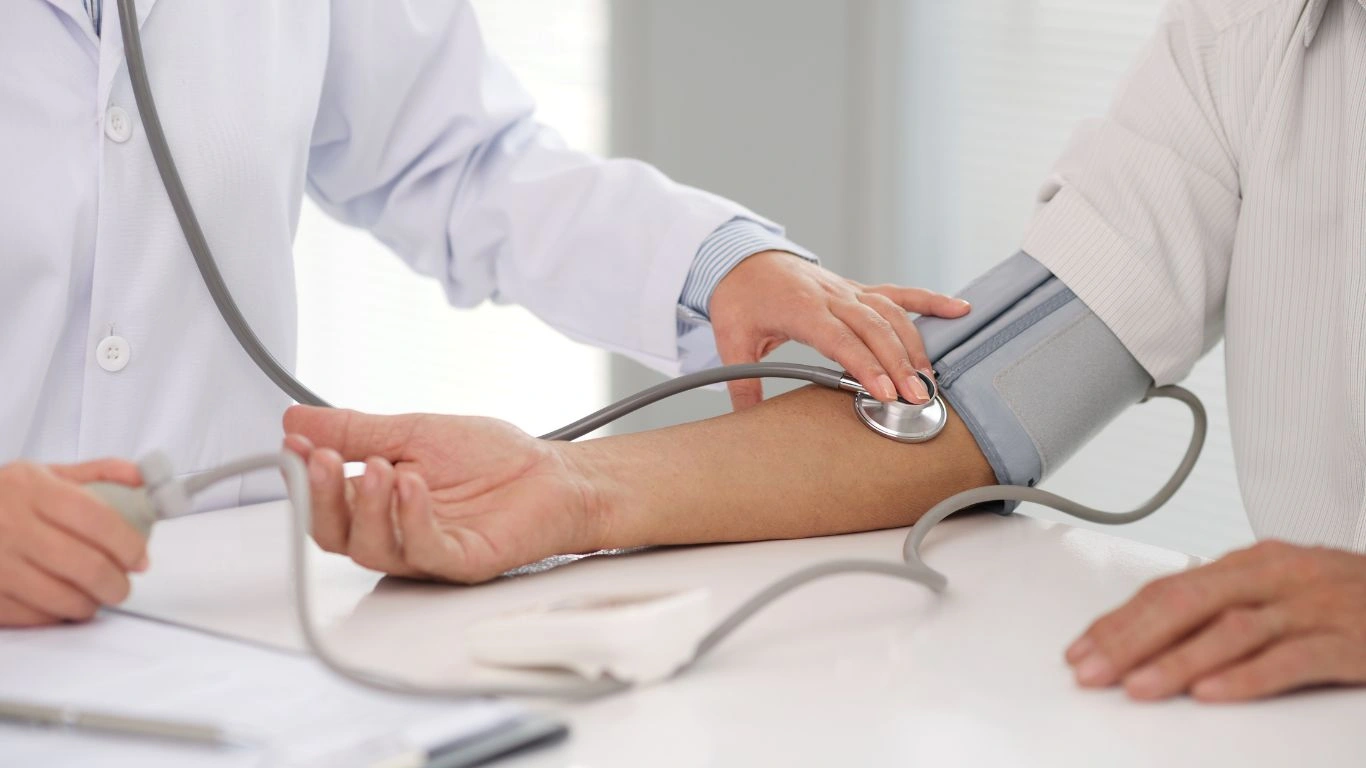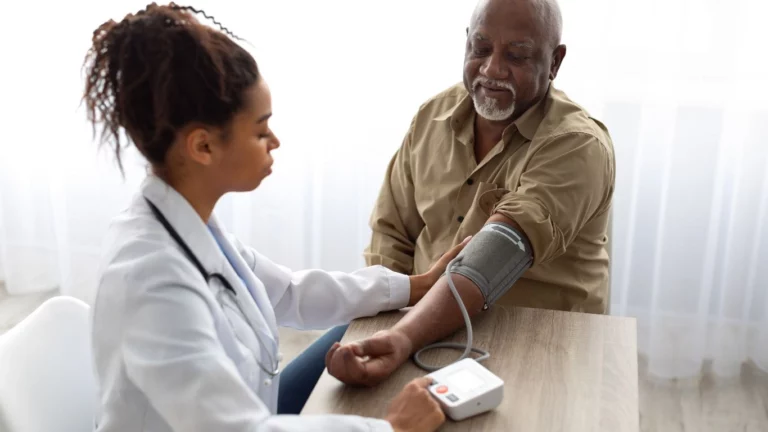Understanding the Connection Between Hypertension and Sleep Apnea
Ever wondered how your blood pressure and your sleep are connected? Turns out, if you’re dealing with hypertension, sleep apnea might be playing a role. Let’s dive into how these two conditions are linked and what you can do about it.
Hypertension (high blood pressure) and sleep apnea are two health conditions that often go hand in hand, yet many people may not even realize they’re related. The connection is stronger than you might think: untreated sleep apnea can make hypertension worse, and vice versa. If you’re someone who struggles with high blood pressure or have been diagnosed with sleep apnea, understanding this link can be crucial for managing your overall health.

What Is Hypertension?
Hypertension, commonly known as high blood pressure, occurs when the force of blood against your artery walls is consistently too high. This condition puts extra strain on your heart and arteries, which can lead to serious problems like heart disease, stroke, and kidney damage.
You may not feel the symptoms of hypertension, which is why it’s often called a “silent killer.” But over time, high blood pressure can cause damage to your body’s organs and increase your risk for severe health issues.
What Is Sleep Apnea?
Sleep apnea is a sleep disorder where your breathing repeatedly stops and starts while you sleep. The most common type is obstructive sleep apnea (OSA), where the muscles in your throat relax excessively, causing a temporary blockage of your airways.
This breathing interruption can lead to fragmented sleep, low oxygen levels in the blood, and increased stress on your heart. It can also result in excessive daytime sleepiness, fatigue, and irritability.

The Connection Between Hypertension and Sleep Apnea
Now, here’s where the link between hypertension and sleep apnea comes into play. Studies show that people with sleep apnea are at a higher risk of developing hypertension. This happens for a few reasons:
1. Breathing Disruptions Raise Blood Pressure
Each time your breathing stops during sleep (which can happen dozens or even hundreds of times a night), your body briefly wakes up, often without you even noticing. This triggers a stress response, causing your heart rate to increase and blood pressure to rise temporarily. Over time, this repeated stress can lead to sustained high blood pressure.
2. Lack of Oxygen (Hypoxia) Affects the Heart
When your breathing is interrupted, the oxygen levels in your blood drop. This hypoxia (low oxygen) can increase the release of stress hormones like adrenaline, which in turn raises your blood pressure. The more severe your sleep apnea, the greater the oxygen deprivation, which can lead to more significant problems with blood pressure.
3. Increased Sympathetic Nervous System Activity
Sleep apnea triggers an overactive sympathetic nervous system, which controls your body’s “fight or flight” response. This heightened activity can cause your blood pressure to remain elevated even when you’re awake, making it more challenging to control hypertension.
4. Obesity and Other Risk Factors
Obesity is a common risk factor for both sleep apnea and hypertension. Excess weight contributes to fat deposits in the neck area, which can increase the likelihood of airway obstruction during sleep. Additionally, obesity itself is linked to higher blood pressure, creating a vicious cycle where sleep apnea exacerbates hypertension and vice versa.
Symptoms of Hypertension and Sleep Apnea
Both hypertension and sleep apnea can be tricky to identify because they often don’t have obvious symptoms, especially when they first develop. But here’s what to watch out for:
Symptoms of Hypertension:
- Headaches
- Shortness of breath
- Nosebleeds
- Fatigue
- Chest pain (in severe cases)
Symptoms of Sleep Apnea:
- Loud snoring
- Choking or gasping for air during sleep
- Excessive daytime sleepiness
- Morning headaches
- Difficulty concentrating
If you notice any of these symptoms, especially if you have one condition but not the other, it might be time to consult a healthcare provider. Addressing both issues early can help you avoid long-term complications.

Treatment Options for Hypertension and Sleep Apnea
Managing both hypertension and sleep apnea requires a combination of lifestyle changes, medical treatments, and sometimes even surgical interventions. Here’s a breakdown of the best options for managing both conditions:
1. CPAP Therapy for Sleep Apnea
The most common treatment for sleep apnea is the use of a Continuous Positive Airway Pressure (CPAP) machine. This device helps keep your airways open by delivering a constant stream of air while you sleep. Using a CPAP machine can significantly reduce the symptoms of sleep apnea and may help lower your blood pressure as a result.
2. Medications for Hypertension
For hypertension, doctors may prescribe medications such as ACE inhibitors, beta-blockers, or diuretics to help lower your blood pressure. These medications can be very effective when combined with lifestyle changes like eating a healthy diet, exercising regularly, and avoiding excessive alcohol and salt.
3. Lifestyle Modifications
Lifestyle changes can also make a big difference. Losing weight, exercising, quitting smoking, and reducing alcohol consumption can all help manage both hypertension and sleep apnea. A healthy diet low in salt and rich in fruits, vegetables, and whole grains can contribute to better blood pressure control.
4. Positional Therapy
In some cases, sleep apnea may be positional, meaning it only occurs when you sleep on your back. Sleeping on your side may help alleviate some of the symptoms, so it’s worth experimenting with different sleeping positions to see if it reduces your snoring and breathing interruptions.
5. Surgical Interventions
If CPAP therapy and lifestyle changes don’t work, surgery may be an option for sleep apnea. Surgical treatments could include procedures to remove excess tissue from the throat or reposition the jaw to improve airflow. Surgery is typically considered after other treatments have been tried and failed.
Conclusion
If you’re dealing with hypertension and sleep apnea, it’s crucial to understand how these two conditions are connected. The good news is that by addressing sleep apnea, you can help reduce your blood pressure and improve your overall health. The best way forward involves a combination of treatments, lifestyle changes, and, in some cases, medical interventions.
By staying proactive and working closely with your healthcare provider, you can manage both conditions effectively and live a healthier, more comfortable life.
Appendices
References
- American Heart Association (AHA). (2023). Hypertension and Sleep Apnea. Read Article
- National Sleep Foundation. (2023). The Impact of Sleep Apnea on Heart Health. Read Article
- National Institutes of Health (NIH). (2024). Hypertension and Sleep Disorders. Read Article
FAQs
- Can sleep apnea cause high blood pressure? Yes, untreated sleep apnea can lead to high blood pressure due to the repeated interruptions in breathing during sleep, which raise heart rate and blood pressure.
- How can I tell if my sleep apnea is causing high blood pressure? The only way to know for sure is by seeing a healthcare provider. They may recommend a sleep study to diagnose sleep apnea and monitor your blood pressure to assess any connections.
- Does treating sleep apnea help lower blood pressure? Yes, treatment for sleep apnea, especially with CPAP therapy, can help reduce high blood pressure in many people.
- What lifestyle changes can help manage both conditions? Maintaining a healthy weight, regular exercise, and a balanced diet low in salt can significantly improve both sleep apnea and hypertension.
- Are there any medications for sleep apnea? Currently, CPAP therapy is the most effective treatment for sleep apnea. However, medications for managing blood pressure can also indirectly help with the cardiovascular strain caused by sleep apnea.
Disclaimer: The information provided in this article is for educational purposes only and does not substitute for professional medical advice. Always consult with a healthcare provider regarding any concerns about hypertension or sleep apnea.

Dr. Gwenna Aazee is a board-certified Internal Medicine Physician with a special focus on hypertension management, chronic disease prevention, and patient education. With years of experience in both clinical practice and medical writing, she’s passionate about turning evidence-based medicine into accessible, actionable advice. Through her work at Healthusias.com, Dr. Aazee empowers readers to take charge of their health with confidence and clarity. Off the clock, she enjoys deep dives into nutrition research, long walks with her rescue pup, and simplifying medical jargon one article at a time.







